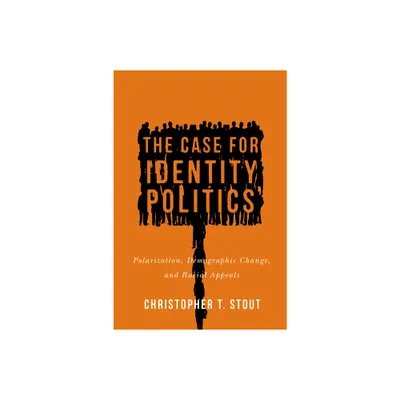Home
Degrees of Equality: Abolitionist Colleges and the Politics Race
Loading Inventory...
Barnes and Noble
Degrees of Equality: Abolitionist Colleges and the Politics Race
Current price: $45.00


Barnes and Noble
Degrees of Equality: Abolitionist Colleges and the Politics Race
Current price: $45.00
Loading Inventory...
Size: Hardcover
*Product Information may vary - to confirm product availability, pricing, and additional information please contact Barnes and Noble
Winner of the New Scholar’s Book Award from the American Educational Research Association
The abolitionist movement not only helped bring an end to slavery in the United States but also inspired the large-scale admission of African Americans to the country’s colleges and universities. Oberlin College changed the face of American higher education in 1835 when it began enrolling students irrespective of race and sex. Camaraderie among races flourished at the Ohio institution and at two other leading abolitionist colleges, Berea in Kentucky and New York Central, where Black and white students allied in the fight for emancipation and civil rights. After Reconstruction, however, color lines emerged on even the most progressive campuses. For new generations of white students and faculty, ideas of fairness toward African Americans rarely extended beyond tolerating their presence in the classroom, and overt acts of racial discrimination grew increasingly common by the 1880s.
John Frederick Bell’s
Degrees of Equality
analyzes the trajectory of interracial reform at Oberlin, New York Central, and Berea, noting its implications for the progress of racial justice in both the nineteenth and twenty-first centuries. Drawing on student and alumni writings, institutional records, and promotional materials, Bell interrogates how abolitionists and their successors put their principles into practice. The ultimate failure of these social experiments illustrates a tragic irony of abolitionism, as the achievement of African American freedom and citizenship led whites to divest from the project of racial pluralism.
The abolitionist movement not only helped bring an end to slavery in the United States but also inspired the large-scale admission of African Americans to the country’s colleges and universities. Oberlin College changed the face of American higher education in 1835 when it began enrolling students irrespective of race and sex. Camaraderie among races flourished at the Ohio institution and at two other leading abolitionist colleges, Berea in Kentucky and New York Central, where Black and white students allied in the fight for emancipation and civil rights. After Reconstruction, however, color lines emerged on even the most progressive campuses. For new generations of white students and faculty, ideas of fairness toward African Americans rarely extended beyond tolerating their presence in the classroom, and overt acts of racial discrimination grew increasingly common by the 1880s.
John Frederick Bell’s
Degrees of Equality
analyzes the trajectory of interracial reform at Oberlin, New York Central, and Berea, noting its implications for the progress of racial justice in both the nineteenth and twenty-first centuries. Drawing on student and alumni writings, institutional records, and promotional materials, Bell interrogates how abolitionists and their successors put their principles into practice. The ultimate failure of these social experiments illustrates a tragic irony of abolitionism, as the achievement of African American freedom and citizenship led whites to divest from the project of racial pluralism.


















